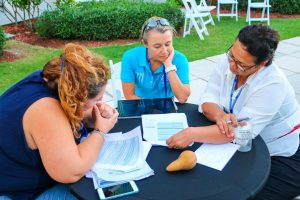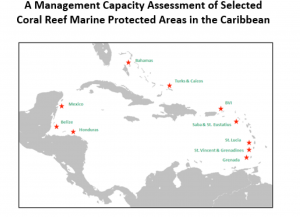MPAConnect
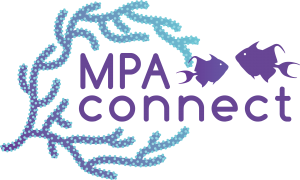 |
A Partnership Between |
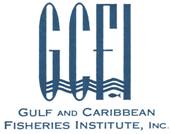 |
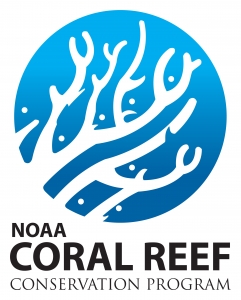  |
Introduction
MPAConnect is a learning network of MPA managers and professionals in the Caribbean that works to increase the effectiveness of MPA management by addressing specific capacity needs of individual MPAs through a variety of means, including regional peer to peer workshops, site-specific technical support, learning exchanges and direct grant funding.
Since 2010, this partnership between the U.S. National Oceanic and Atmospheric Administration (NOAA), through their Coral Reef Conservation Program, and the Gulf and Caribbean Fisheries Institute (GCFI) has addressed MPA management capacity by building a network of some 40 MPAs across 18 countries/territories in the Wider Caribbean region.
The capacity building initiatives by MPAConnect are founded on a management capacity tool that translates day-to-day management challenges into targeted capacity building approaches to help MPA managers meet conservation commitments. Based on detailed assessments in 2011 and 2017 which apply a specialized tool for facilitated self-evaluation of management capacity by MPA managers, the initiative works to understand and address capacity as related to 20 distinct elements of effective MPA management programs.
The MPAConnect approach to capacity building is to facilitate peer to peer learning in the region by strategically targeting the highest priority management needs identified by managers through the assessment process. To date the partnership has helped MPAs increase their management capacity on top priority needs, while also following up on site-specific management capacity needs and establishing a close-knit network between coral reef MPA managers and organizations with MPA management expertise.
There is much experience to share between Caribbean MPAs. Mentor sites that recorded Tier 3 for capacity in the 2011 MPA management capacity assessment made excellent contributions to building capacity among their peers at the regional peer-to-peer workshops. MPAConnect includes a network of knowledgeable and experienced MPA mentors – regional MPA go-to people who stand ready to share their experience and provide guidance in the face of common challenges to effective MPA management.




Regional Peer-to-Peer Learning
Since 2012 GCFI and NOAA have implemented a series of regional workshops for peer-to-peer learning, focused on the network’s highest priority management needs – sustainable financing, law enforcement, socio-economic monitoring, outreach/education and bio-physical monitoring.
2021 MPAConnect Small Grants Program
MPAConnect, with funding from NOAA’s Coral Reef Conservation Program, will be providing grants of up to $15,000 to support follow-up activities on earlier MPAConnect peer-to-peer learning exchanges. Recipients of the grants are MPAConnect member sites in Mexico, Belize, Honduras, The Bahamas, St. Vincent and the Grenadines, and Grenada. The grants represent an investment of more than US$75,000 in Caribbean MPA management and will allow on the ground implementation of best practices for effective MPA management. Aiming to offer the small grants program on an annual basis, MPAConnect welcomes additional support from donors who seek to have a tangible impact on marine conservation through targeted support to Caribbean MPAs.
| Country | MPA Supported | Organization | Project Title |
| Mexico | Parque Nacional Arrecife Alacranes | CONANP and Partner | Fortalecimiento de Capacidades Para el Monitoreo de la Salud Arrecifal en el Parque Nacional Arrecife Alacranes |
| Belize | Port Honduras Marine Park | Toledo Institute for Development and Environment | Improving Fisheries Resilience in Port Honduras Marine Reserve, Belize Through Communication on Managed Access and Coral Disease Monitoring and Response |
| Honduras | Turtle Harbor-Rock Harbor Special Environmental Zone | Bay Islands Conservation Authority – Utila | Creando Respuesta Comunitaria Ante la Llegada de la Enfermedad de Pérdida de Tejido en Corales Duros, Utila, Honduras. |
| Monumento Natural Marino Archipiélago Cayos Cochinos | Fundacion Cayos Cochinos | Monitoreo y Tratamiento de la Enfermedad de Pérdida de Tejido del Coral Pétreo en el Monumento Natural Marino Archipiélago Cayos Cochinos | |
| Sandy Bay/West End Special Environmental Protection Zone | Roatan Marine Park | Sustainable Financing for Roatan Marine Park | |
| The Bahamas | Moriah Harbour Cay National Park | Bahamas National Trust | Establishing New Financing Mechanisms for Moriah Harbour Cay National Park, Exuma, The Bahamas |
| St. Vincent and the Grenadines | Tobago Cays Marine Park | Tobago Cays Marine Park | Implementing an Online Payment System to Improve Sustainable Financing Within Tobago Cays Marine Park |
| Grenada | Sandy Island Oyster Bed and Moliniere Beausejour Marine Parks | Grenada Coral Reef Foundation | Stony Coral Tissue Loss Disease (SCTLD) Preparedness for MPAConnect MPAs in Grenada |
A Tool for Prioritizing Capacity Building Needs for Effective MPA Management
The capacity building initiatives by MPAConnect are founded on a management capacity tool that translates day-to-day management challenges into targeted capacity building approaches to help MPA managers meet conservation commitments.
- MPAConnect is based on a practical, locally-relevant and needs-driven capacity building approach to support effective MPA management.
- MPAConnect developed a specialized tool that facilitates the self-evaluation of management capacity needs and strengths relating to some 20 distinct elements of MPA management.
- The MPAConnect capacity tool helps our partnership and participating MPA managers to better understand and address local and regional MPA management capacity needs by guiding strategic peer-to-peer sharing of knowledge between MPA managers in the Caribbean.
In 2011 the partnership undertook the first assessment of Caribbean MPA management capacity using the MPAConnect capacity tool. See the 2011 report for more information.
Six years after the first capacity assessment, in 2017 we invited the members of MPAConnect to review their management capacity and update us on their highest priority needs for capacity building, networking and future support. See the StoryMaps below for the latest findings on MPA management capacity in the Caribbean.
Follow-up Site-Specific Technical Support
The regional peer-to-peer learning activities have been backed up by site-specific technical support, learning exchanges and regional and international networking opportunities coordinated by MPAConnect. These activities have addressed the desired follow-up identified by participants at the regional workshops to build capacity on the ground at their sites. Site-specific projects have also helped to address other individual capacity building needs of particular MPAs. The following StoryMap details these follow-up projects, many of which have been successfully completed by the participating MPAs, some are currently underway and yet others remain desired by the MPA managers to fill gaps identified in management capacity (potential partners and donors please take special note of the latter!).








